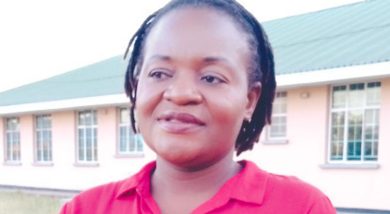PPDA saves Marep IX ‘errant’ suppliers from disbarment
The Public Procurement and Disposal of Assets Authority (PPDA) has saved from debarment six companies that received 30 percent part-payment but failed to supply materials for the Malawi Rural Electrification Programme (Marep) Phase IX project.
The companies are reported to have repaid the money and attributed their failure to supply to forex shortages.

In an interview on Thursday, Ministry of Energy Principal Secretary Alfonso Chikuni indicated that the suppliers repaid the advances, adding that one contractor who got a stop order over the matter, has also repaid the money.
Chikuni, however, neither disclosed the names of the suppliers nor the amount disbursed and recovered.
According to the PS, the contractors supplied just 56 percent of materials by the August 25 2023 deadline owing to, among other challenges, foreign exchange shortages.
He explained that the ministry wrote PPDA to have the suppliers disbarred.
Said Chikuni: “We wrote PPDA to ask them to debar the failed companies, but we were advised differently. I doubt there is a framework for clients to set a process with PPDA for disbarment.”
Section 56(1) of the PPDA Act states that the director general may exclude a supplier, contractor, consultant or any bidder from participating in public procurement for any conduct prescribed in the Act in accordance with procedures set out in the regulations.
PPDA spokesperson Kate Kujaliwa, in an interview on Wednesday, said the office is closed for holidays and; therefore, she could not confirm the assertions.
Procurement expert Arnold Chirwa has since observed that there are about seven reasons PPDA may exclude or debar a supplier contractor or consultant and one of them is “breach of contractual provisions”, which fits with what the Ministry of Energy based its application.
He said: “In that case, the ministry wants to punish the suppliers for wasting its time, and delayed service delivery to the public. But the PPDA is probably of the view that this is double punishment and they should just be warned.”
Chirwa agreed with the ministry, arguing that government lost time and service delivery and that someone must pay for it in one form or the other.
He said: “I would support the debarment of these suppliers considering the more than six months lost in bidding, negotiations, awards and related activities.”
Chirwa, however, added that the debarment may be challenged in a court of law and, perhaps, the Attorney General (AG) should be moved to provide guidance.
In January this year, the ministry extended contracts of 38 contractors for three months and again extended for another two months after some of the companies failed to perform.
Chikuni explained that granting addendums for the materials under the six failed suppliers was not an optimal approach owing to price escalations since the bids were submitted more than a year ago.
Earlier, the ministry indicated that contracts for the supply of materials totalled K71 billion while construction works were estimated at K9 billion before the recent 44 percent kwacha devaluation.
Parliamentary Committee on Natural Resources and Climate Change chairperson Werani Chilenga earlier said the programme has taken ages to roll out and feared that it will affect plans for Marep X.
Marep IX rolled out early this month with contracts for the construction of power lines signed and sites handed over.
The contractors were in 28 days expected to be on site and provide documentation for performance bonds, said Chikuni.
Currently, rural electrification stands at 4.2 percent, but government plans to increase to 30 percent by 2030 through the grid and to 100 percent universally. The universal includes grid and other alternatives such as solar.
Marep IX is projected to connect 416 sites and power some 20 800 homes in rural areas nationwide.
The phase has been rocked with hitches as in June 2021 the Anti-Corruption Bureau stopped the Ministry of Energy from proceeding with the award of contracts but later, in October, ordered the ministry to restart the procurement process.
Marep started in 1980 under Electricity Supply Corporation of Malawi as the implementing agency through donor financing. In 1995, the
Government of Malawi took over implementation of the programme with the Department of Energy as the implementing agency.
By the end of Phase VIII, Marep had connected 1 127 sites to the national electricity grid. In the past 10 years, K80 billion has been invested in Marep.
The 2008 Energy Policy anticipated an increase in electricity coverage in Malawi at 30 percent by 2020. However, statistics show that, currently, about 12 percent of the population has access to electricity.






One Comment